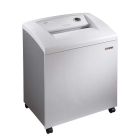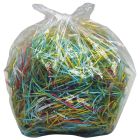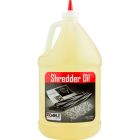Preventing Identity Theft
Identity theft is an increasing and constant threat. Here are some tips to help keep you from becoming a victim.
PIN Numbers:
There are several hard and fast rules when it comes to safeguarding your PIN numbers. When you are deciding on a PIN, do not choose something that someone can easily guess such as your birthdate or something similar. Often your bank will supply you with a PIN when they issue your ATM card. You might as well take the time to memorize this number rather than replacing it with your own.
Another rule when it comes to PINs is to never keep it in your wallet. You should, in fact not keep in written form anywhere once you have it memorized.
Passwords:
You should change the passwords to your email, PayPal and online banking and credit card accounts quarterly of not more often. Use seven or eight characters and include both numbers and letters or even symbols if they are allowed. If you can avoid keeping your passwords stored on your computer, that would be best, but if there are simply too many to remember, you can keep them in a spread sheet that is named innocuously, or in other words, not "passwords."
Snail Mail:
Take your mail out of the mailbox a soon as you can get to it. Identity thieves steal mail from mailboxes in order to get names, numbers, and even to apply for credit cards in your name. If you stop receiving mail, talk to your local post office immediately. In many cases, signatures have been forged on mail forwarding requests, and the thieves then used credit card statements and solicitations to get credit or run up charges.
Credit card offers or unsolicited loan applications that you have no intention of using should be thoroughly destroyed in a cross cut paper shredder before you discard or recycle them. You can opt out of receiving credit card offers in the mail. Just search the term "stop credit card offers" and follow the links and instructions.
Checks and Balances:
Most banks these days give you the option of receiving your monthly statements via snail mail or by email. Email is the safer way to go, and it saves paper too. Whichever you decide, make sure that you go through your statement and can that you can account for every transaction. The same, of course, goes for your credit card statements.
You might also want to do a periodic check of your credit rating through one of the major credit bureaus.
Get A Good Paper Shredder:
A good paper shredder is your first line of defense when it comes to preventing identity theft. Any documents that contain any sort of personal information should be shredded before they are discarded. Make sure that the shredder you purchase employs a cross cut rather than a strip cut, as the cross cut is much more secure. Items that should be shredded are the aforementioned bank and credit card statements and unused credit and loan applications, anything that contains your name and social security number, or that contains your signature.









